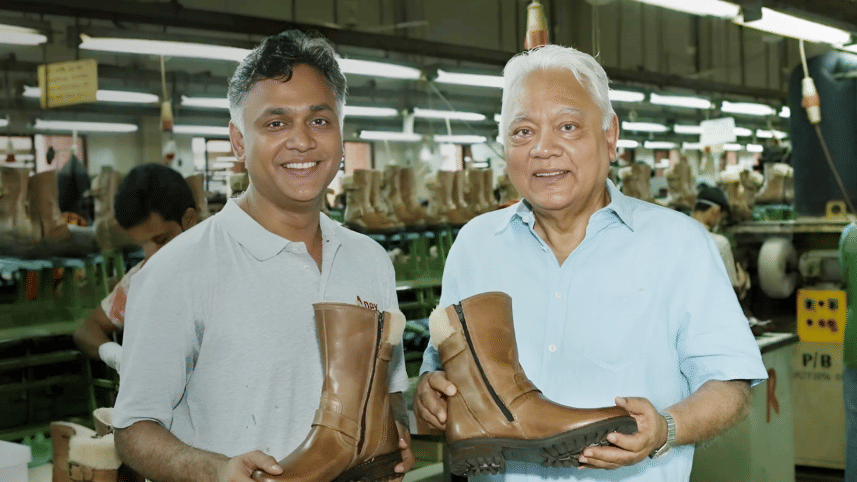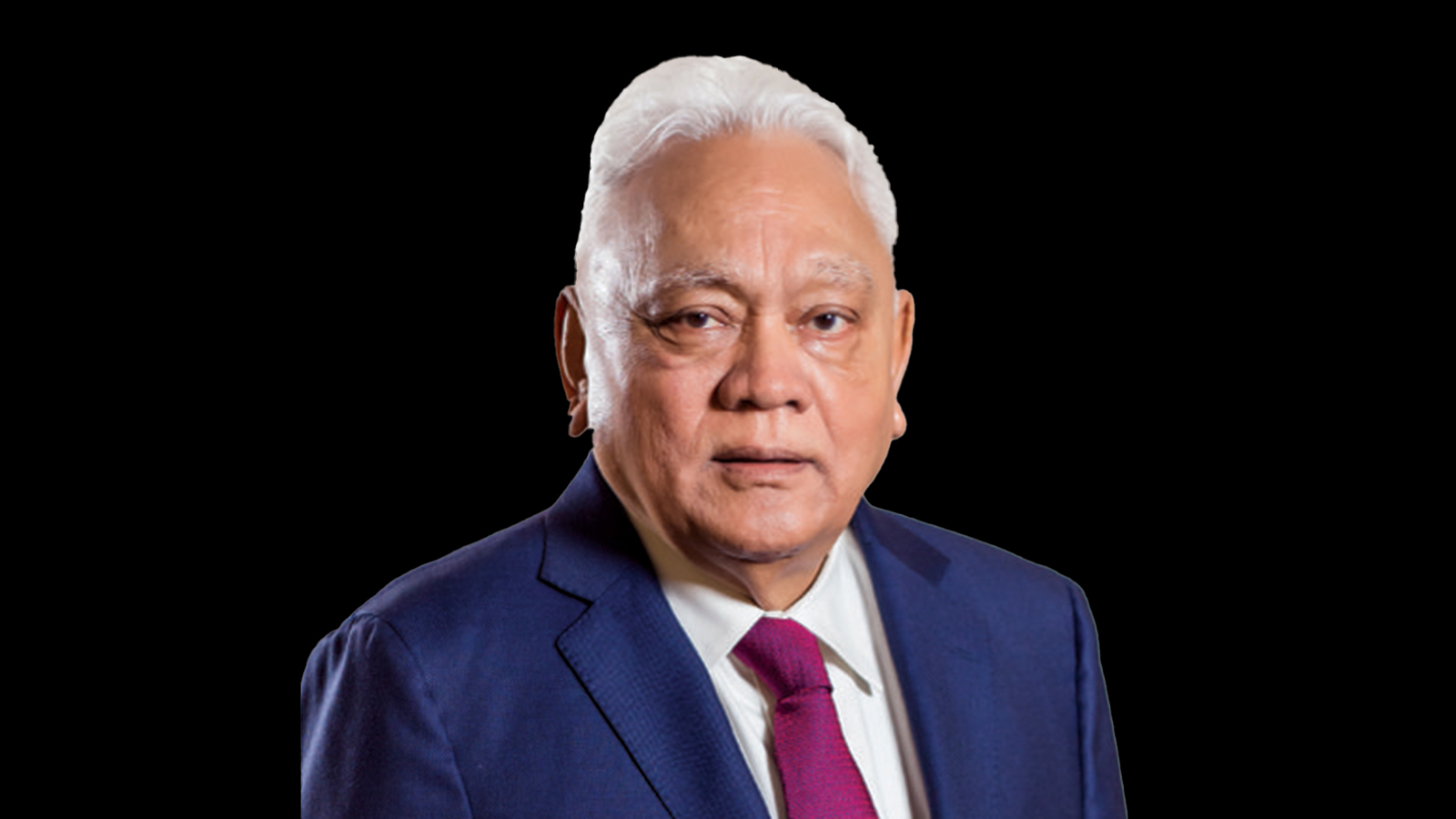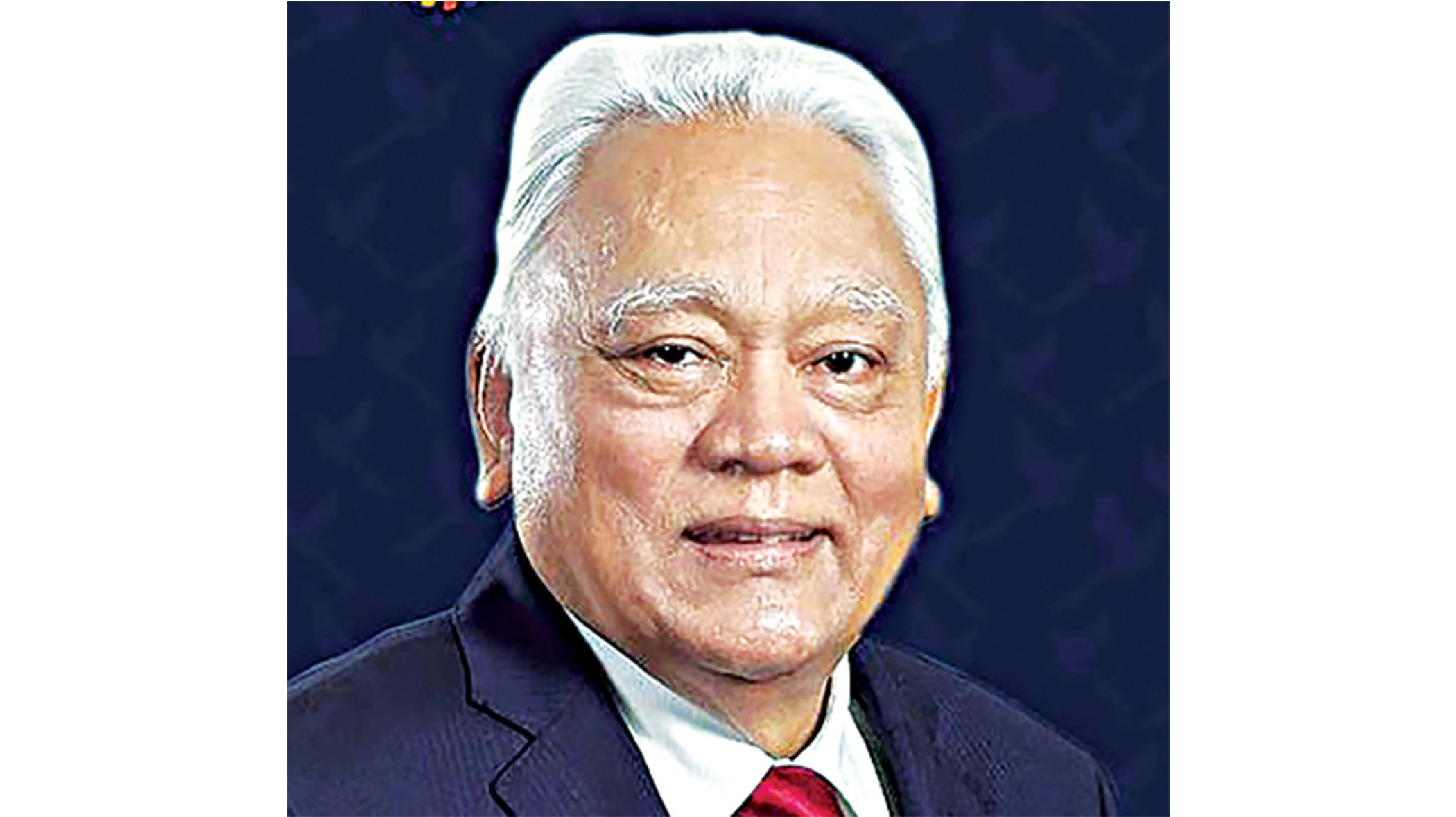Syed Manzur Elahi: a visionary entrepreneur and nation-builder

Syed Manzur Elahi was one of Bangladesh's most distinguished industrialists and entrepreneurs. As the chairman of Apex Group, he has played a pioneering role in shaping the country's leather and footwear industries while also making substantial contributions to banking, insurance, and the broader corporate landscape.
A man of vision, Elahi's contributions extend beyond business, as he has twice served as an adviser to Bangladesh's caretaker government.
His legacy is one of resilience, innovation, and unwavering commitment to economic development.
Early Life and Education
Born on February 26, 1942, in Kolkata, Syed Manzur Elahi came from a family steeped in law and judiciary. His father, Syed Nasim Ali, was the chief justice of the Kolkata High Court. However, tragedy struck early in his life when he lost his father at the tender age of four.
Raised under the care of his elder brothers, he grew up in an environment that emphasized intellect and discipline.
Elahi's education took place at St. Xavier's College, Kolkata. He completed his Bachelor of Arts with distinction in 1962. Soon after, he moved to Dhaka and pursued a Master's in Economics at the University of Dhaka, graduating in 1964.
His academic grounding in economics would later play a crucial role in shaping his business acumen.

Early Career and Entrepreneurial Leap
After completing his education, Elahi joined British American Tobacco in Karachi, Pakistan and London. His stint in the corporate world provided him with invaluable experience and insights into business operations.
However, despite a promising corporate career, he felt an urge to take on the uncertain yet exciting path of entrepreneurship.
On February 26, 1972, on his 30th birthday, he left his comfortable job at British American Tobacco to embark on his entrepreneurial journey.
He embarked on an uncharted journey of entrepreneurship. Starting his own business marked a second departure from family tradition, and the choice of the leather industry, an industry self-admittedly deemed "dirty and obnoxious," represented a significant leap of faith.
Yet, Elahi navigated the challenges, acknowledging the societal stigma attached to this field, and began his foray into the world of leather.
Success soon greeted him in a business that appeared modest but proved to be a lucrative niche. It was not long before he contemplated expanding into big business, eventually leading to the acquisition of his first tannery, Orient Tannery.
In 1975, amid the government's privatization of loss-making tanneries, Elahi successfully bid for Orient Tannery, the first tannery to be sold through such a process. This marked his official entry into mainstream leather manufacturing, giving rise to a company that would live up to its name: Apex.
The journey wasn't devoid of challenges. The scarcity of skilled labor posed an obstacle, while the volatility of the international leather market presented a further hurdle.
But Elahi kept things in control and took the company public in 1982, raising the finance to move into more capital-intensive operations before finally making the move to footwear in 1990.
This presented another problem, as low quality and failure to deliver on time in the unfamiliar business of manufacturing meant that purchase orders began to drop almost immediately.
After convincing Japan's largest shoe retailer, Marutomi, to order some shoes, 97 percent of the shoes did not pass the quality test.
Elahi still favored Bangladesh's advantages in the leather sector and began to emphasize the role of technology as a significant driver for Apex's success, enabling the company to compete on an international scale and deliver products of superior quality to meet global demand.
Shoes, wallets, sandals, belts, and different types of boots bearing the 'Made in Bangladesh' tag are now found in leading global retailers, including Fila, Deichmann, Timberland, Aldo, H&M, Marks and Spencer, s.Oliver, and Wolverine.
By importing know-how and adopting advanced technologies from Europe, particularly Italy, Apex achieved remarkable advancements in its manufacturing processes. These advancements not only enhanced the company's production capacity but also helped maintain stringent quality standards, enabling Apex to position itself as a leader in the competitive leather and footwear industries.
This strategic move underscores Elahi's forward-thinking approach and his commitment to incorporating the best practices from around the world into the operations of Apex.
It further solidifies his legacy as an astute entrepreneur, one who recognized the importance of embracing innovation and staying ahead of the curve to achieve sustained success in the dynamic business landscape.
Apex's success story continued to unfold, diversifying into the pharmaceutical sector with Apex Pharma and investing in an environmentally friendly tannery plant in Shafipur. Today, Apex Tannery and Apex Footwear stand as a testament to the dedication and vision of Syed Manzur Elahi.

Contributions to the Financial Sector
Beyond his impact on the leather industry, Syed Manzur Elahi played a vital role in Bangladesh's financial sector.
He was the founding chairman of Mutual Trust Bank Ltd. (MTB) and Pioneer Insurance Company Ltd. His leadership in banking helped establish a strong foundation for private-sector banking in Bangladesh, offering modern financial services and fostering economic growth.
He is also the founder chairman of Apex Enterprises Ltd., Blue Ocean Footwear Ltd., and Quantum Consumer Solutions Ltd. He also chairs Apex Pharma Ltd., Apex Investments Ltd., and Manusher Jonno Foundation.
As the founder chairman of Grey Advertising Bangladesh, he contributed to the country's growing marketing and communication industry.
Additionally, he served as a director of International Publications Limited, the owning company of The Financial Express, one of Bangladesh's leading financial newspapers.
Role in Governance and Policy Reforms
Elahi's leadership and integrity extended beyond business. He was appointed as an adviser to the caretaker government of Bangladesh twice, in 1996 and 2001, where he handled critical portfolios related to commerce and industry.
His nonpartisan stance, professionalism, and deep understanding of the business landscape made him an ideal choice for these crucial roles.
Moreover, he served as a member of the Regulatory Reforms Commission and the Public Administration Reforms Commission, contributing to policy changes aimed at improving governance and the ease of doing business in Bangladesh.
Awards and Recognitions
Elahi's outstanding contributions to trade, industry, and governance have earned him numerous accolades.
He was named "Business Executive of the Year 2000" by the American Chamber of Commerce (AmCham), Bangladesh. In 2002, The Daily Star and DHL Worldwide Express honored him with the "Business Person of the Year" award.
These awards recognize his leadership, innovation, and impact on the country's economy.
Philanthropy and Social Impact
Beyond his business endeavors, Elahi is a trustee of several educational and philanthropic organizations. He is the chairman of the Board of Trustees of East West University and a trustee of the Centre for Policy Dialogue (CPD), the Diabetic Association of Bangladesh, and the Bangladesh Freedom Foundation.
He previously served as the chairman of the Bangladesh Association of Banks (BAB), Central Depository Bangladesh Ltd, vice chairman of the Bangladesh Association of Publicly Listed Companies (BAPLC) and director of Bangladesh Bank, Sonali Bank, Bangladesh Krishi Bank and the Export Promotion Bureau (EPB).
Through these roles, he has contributed to education, public health, and social welfare, reinforcing his commitment to national development.
Legacy and Continuing Influence
Syed Manzur Elahi's journey from a corporate executive to one of Bangladesh's most successful entrepreneurs is a testament to the power of vision, resilience, and ethical leadership. His contributions to industry, finance, governance, and philanthropy make him a true nation-builder.
As he continues to mentor young entrepreneurs and shape the country's economic policies, his legacy will undoubtedly endure. His story serves as an inspiration for those who aspire to create lasting change through entrepreneurship, innovation, and leadership.






 For all latest news, follow The Daily Star's Google News channel.
For all latest news, follow The Daily Star's Google News channel. 

Comments